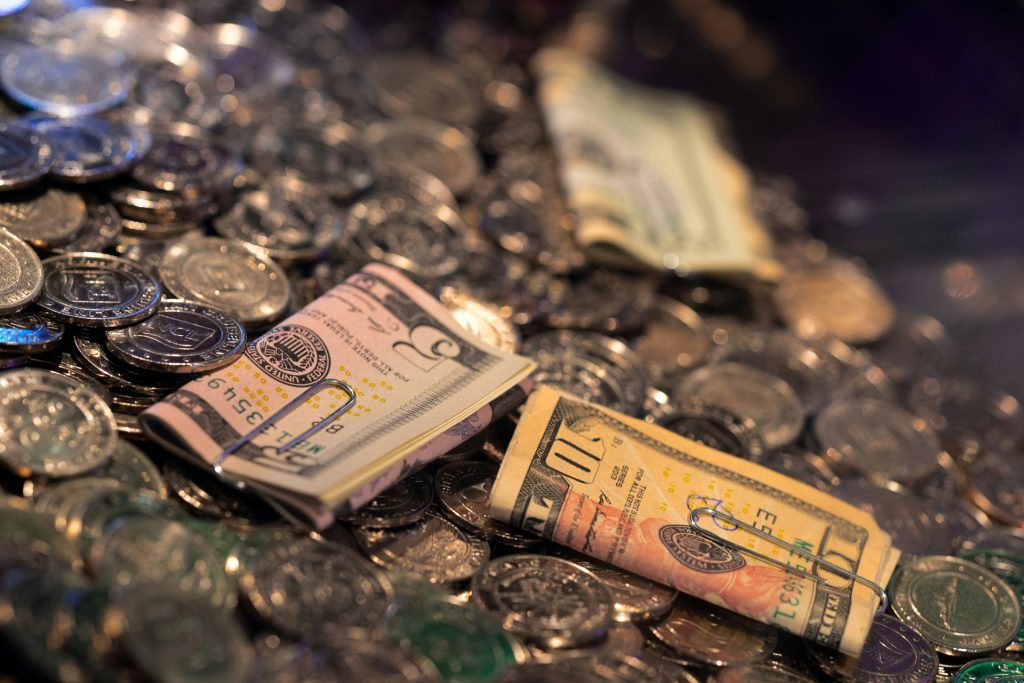
Image Source: unsplash.com
Many people consider stashing cash around their homes as a safety net against financial emergencies or banking system failures. While the idea might seem prudent at first glance, hiding money at home carries significant risks that often outweigh the perceived benefits. Before you start tucking bills under your mattress or inside that hollowed-out book, consider these compelling reasons why financial experts advise against this practice.
1. Vulnerability to Theft Makes Your Hard-Earned Money an Easy Target
Home burglaries remain surprisingly common across America, with over 1 million occurring annually. Professional thieves know all the common hiding spots you might think are clever—from freezers to toilet tanks to fake food containers. Even if you believe your hiding place is unique, experienced burglars are trained to search thoroughly, often finding cash stashes within minutes of entering a home. The emotional trauma of a break-in is devastating enough without adding financial loss to the equation. Most importantly, unlike bank deposits, cash stolen from your home typically has no recovery mechanism or insurance protection.
2. Natural Disasters Can Destroy Cash Without Warning
Fire, floods, tornadoes, and hurricanes don’t discriminate when destroying property—including your hidden money. According to FEMA, natural disasters affect millions of American homes each year, causing billions in property damage. Paper money burns easily in house fires, with temperatures reaching over 1,100 degrees Fahrenheit within minutes. Water damage from floods or burst pipes can render cash unrecognizable or completely destroyed. Even if partially damaged, the process for redeeming mutilated currency through the Bureau of Engraving and Printing is lengthy and doesn’t guarantee full reimbursement. The psychological impact of losing both your home and financial safety net simultaneously can be devastating to recovery efforts.
3. Inflation Steadily Erodes Your Money’s Purchasing Power
When cash sits idle at home, inflation silently diminishes its value year after year. The historical average inflation rate of approximately 3% means money hidden for ten years loses nearly a third of its purchasing power. Unlike bank accounts or investments that can generate interest or returns to offset inflation, cash hidden at home only depreciates. According to economic research, even modest inflation rates compound dramatically over time, turning today’s emergency fund into tomorrow’s insufficient savings. Financial advisors consistently recommend keeping money in vehicles that, at minimum, match inflation rates to preserve wealth. Hidden cash represents a guaranteed negative return on your hard-earned money.
4. You Miss Valuable Interest and Investment Opportunities
Every dollar hidden at home is a dollar not working for your financial future. Even modest interest-bearing accounts can generate compound returns over time, while investment vehicles offer the potential for significant growth. According to financial experts, just $1,000 invested with a 7% average annual return grows to over $7,600 in 30 years without adding another penny. The opportunity cost of keeping substantial cash at home extends beyond immediate interest, impacting long-term financial security and retirement planning. Financial literacy research shows that understanding compound interest is one of the most important factors in building wealth over time. Hidden cash represents not just current lost interest but potentially thousands in foregone future earnings.

Image Source: unsplash.com
5. Home Insurance Policies Rarely Cover Large Cash Amounts
Most homeowners are shocked to discover their insurance policies typically limit cash coverage to between $200-$2,000, regardless of how much was actually lost. Standard homeowners insurance policies contain specific sub-limits for currency that fall far below what many people hide at home. Documentation requirements for cash claims are particularly stringent, often requiring proof of withdrawal and existence that most people simply don’t maintain. Insurance adjusters are trained to be skeptical of large undocumented cash claims following home disasters. Without photographic evidence and detailed records, recovering even the limited amount covered becomes extremely difficult after a loss.
6. Family Members May Not Know About Hidden Money
The tragic reality is that money hidden too well might never be found if something happens to you. Countless stories exist of family members discovering cash in walls, furniture, or books years after a loved one’s passing—sometimes accidentally during renovations or when selling property. Without proper documentation or communication, your emergency fund could become permanently lost rather than benefiting your heirs. Estate planning experts consistently warn against undocumented cash holdings as they complicate probate and may violate tax reporting requirements. The emotional impact of discovering a loved one kept secrets, even well-intentioned ones, can create family tension during already difficult times.
7. Hidden Cash Creates Unnecessary Stress and Anxiety
Managing secret cash stashes creates an ongoing psychological burden—constantly wondering if your money remains safe, remembering multiple hiding locations, and worrying about discovery. Research in behavioral economics shows that financial anxiety negatively impacts overall well-being and decision-making abilities. The cognitive load of maintaining and monitoring hidden money creates stress that formal banking eliminates through security systems and deposit insurance. People with hidden cash report checking their hiding spots frequently, sometimes developing obsessive behaviors around their secret funds. The peace of mind that comes with proper financial planning often outweighs any perceived benefits of having immediate cash access.
8. Legal Currency Reporting Requirements May Be Overlooked
Large cash transactions and holdings can trigger legal reporting requirements that many people aren’t aware of when hiding money. The IRS requires reporting of cash transactions over $10,000, and structuring smaller transactions to avoid this limit is illegal. According to IRS guidelines, unexplained large cash deposits can trigger audits or investigations when eventually deposited into financial institutions. Law enforcement increasingly views large undocumented cash holdings with suspicion during investigations, potentially creating legal complications even for legitimate money. Financial transparency laws continue to tighten globally, making cash-based financial strategies increasingly problematic from a compliance perspective. The legal consequences of improper cash handling can far outweigh any temporary convenience of home storage.
Secure Alternatives That Protect Your Financial Future
Instead of risking your financial security with cash hidden around your home, consider FDIC-insured bank accounts, credit unions, or even secure safe deposit boxes for important documents and small valuables. Modern banking offers numerous options for emergency fund access while protecting against theft, disaster, and inflation. Digital banking now provides instant access to funds through multiple channels while maintaining security protections that no home hiding spot can match. Financial advisors recommend diversifying emergency funds across multiple secure vehicles rather than consolidating in cash. Remember that financial security comes not from physical proximity to your money but from wise management and protection strategies.
Have you ever hidden money at home and experienced any of these risks firsthand? Share your experiences in the comments below!
Read More
10 Places That Burglars Are Hoping You’ll Hide Your Cash and Jewelry (So Don’t)
Your Home Isn’t as Safe as You Think: 5 Security Flaws Burglars Love
Leave a Reply